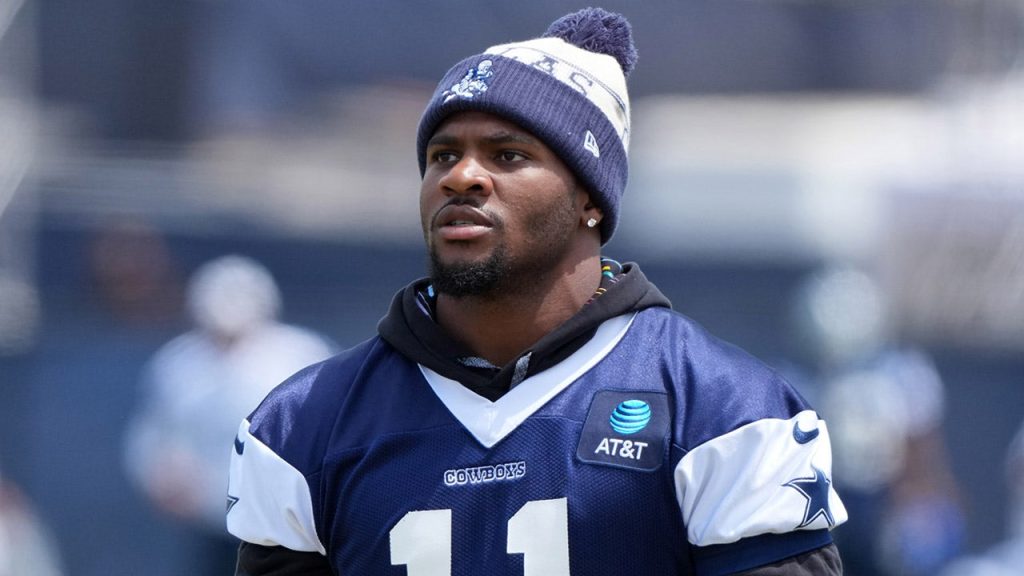The Messy End of Micah Parsons’ Cowboys Career
Last week marked the abrupt end of Micah Parsons’ time with the Dallas Cowboys, culminating in a trade to the Green Bay Packers that sent shockwaves through the NFL. What began as a promising partnership between one of the league’s most storied franchises and an elite defensive talent concluded with a public falling out that left many fans wondering what went wrong. The All-Pro edge rusher had requested a trade in early August, pointing specifically to comments made by team owner Jerry Jones as the catalyst for his decision. In his own words, Parsons stated he “no longer wanted” to be in Dallas, signaling an irreparable rift between player and organization.
The financial implications of Parsons’ departure were staggering. Upon arriving in Green Bay, he quickly signed a four-year contract worth $188 million, shattering NFL records for defensive players. The massive payday represented not just Parsons’ market value but also the Packers’ commitment to building around a defensive cornerstone. Meanwhile, in Dallas, Jerry Jones claimed he had offered a similarly record-breaking deal, suggesting Parsons simply wanted out regardless of the money. This narrative, however, was promptly challenged by Parsons’ agent, David Mulugheta, who appeared on ESPN’s “First Take” to give his perspective on the negotiations, calling Jones’ characterization a “loaded question” that didn’t tell the full story.
According to Mulugheta, the contract offered by Dallas would have indeed made Parsons the highest-paid defensive player in terms of average annual value at $40.5 million per year. However, the agent revealed that “the devil’s in the details,” explaining that the structure of the Cowboys’ offer was problematic. Despite the impressive headline number, Mulugheta claimed the deal wouldn’t have paid Parsons as the highest-paid player in the NFL during the first three years, and the guaranteed money structure was far less favorable than what Green Bay ultimately provided. This discrepancy in contract structure, particularly regarding guaranteed money, appears to have been a significant sticking point in negotiations. Mulugheta suggested that Dallas’s offer, like many of their recent contracts, featured guarantees that “don’t stretch much further than the first new year,” contrasting sharply with Parsons’ Green Bay deal, which includes “guarantees four years from now.”
Perhaps most poignantly, Mulugheta emphasized that contrary to emerging narratives, Parsons had genuinely wanted to remain with the Cowboys. “Micah wanted to be a Cowboy. He grew up cheering for the Cowboys, wore the blue and white at Penn State, wore it for the Cowboys, he wanted to be a Cowboy, and we did everything we could for him to remain a Cowboy,” the agent explained. This sentiment challenges the notion that Parsons was simply looking for an exit or was being unreasonable in negotiations. Instead, Mulugheta suggested that certain information had been “put out in the media to make it look as though Micah turned down a fair or a great deal, but that simply is not the case.” This statement hints at behind-the-scenes tensions and possible attempts to control the public narrative around Parsons’ departure.
The fallout from this high-profile separation will be felt immediately in the NFL landscape. Rather than preparing to face the Philadelphia Eagles in a pivotal NFC East matchup on Thursday, Parsons now has additional time to acclimate to his new team before making his Packers debut against the Detroit Lions. For Dallas, the loss of their defensive star creates an immediate void in their pass rush and raises questions about their ability to compete at the highest level without one of the league’s premier defensive talents. For fans, the situation represents yet another chapter in the sometimes tumultuous history of the Jones-led Cowboys, where star players have occasionally departed under contentious circumstances.
The Parsons saga ultimately highlights the complex reality of modern NFL negotiations, where the headline numbers often don’t tell the complete story. It demonstrates how contract structures, guarantee mechanisms, and relationships between players, agents, and ownership can dramatically impact outcomes. For Parsons, the move to Green Bay represents not just a massive financial windfall but also a fresh start with an organization that was willing to commit to him long-term in both word and contract structure. For the Cowboys, it marks another instance where a homegrown star departs, leaving fans to wonder what might have been had the relationship been salvaged. As both parties move forward on separate paths, only time will tell whether this divorce will be remembered as a turning point for better or worse in the careers of Micah Parsons and the future trajectory of the Dallas Cowboys organization.


